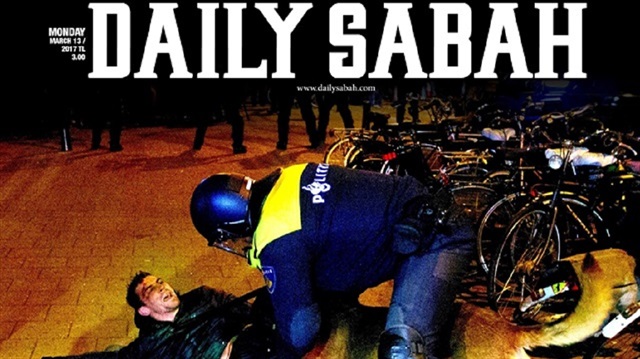
The decision to ban a Turkish newspaper from the European Parliament was condemned as a “massacre" of press freedom by Justice Minister Bekir Bozdağ
Daily Sabah, an English-language daily, was banned from the parliament building in Brussels by parliament President Antonio Tajani on Wednesday following a complaint by Dutch lawmaker Jeroen Lenaers.
“This unjust decision of the President of the European Parliament and its fascist application is the massacre of freedom of press and expression, and the destruction of EU values," Bekir Bozdağ said in a series of tweets.
The decision demonstrated “the ugly face of the European Parliament. I condemn this ugly face."
The minister added: “In Europe, press freedom and freedom of expression exist only for those who slander Turkey but critics of Europe and Europeans do not have freedom of expression. This is a double standard."
Deputy Prime Minister Numan Kurtulmuş also condemned the "one-sided" and "unacceptable" decision, saying such moves "play into the hands of neo-fascists and Neo-nazis."
"Where is the freedom of speech? Where is the freedom of expression?" he said, adding Daily Sabah was banned because it "openly supports the Yes campaign," referring to the upcoming constitutional referendum in Turkey.
Noting that no Turkish pro-No daily was banned from the EP, Kurtulmuş slammed the "double standards," and "anti-democratic approach".
"This also contradicts the European values they are so vocal about. This is a stance against the ideal of free Europe. It is wrong," he said.
The block on the distribution of the newspaper, which had previously taken place every Tuesday, was confirmed to Daily Sabah by parliament's media office on Thursday.
Lenaers launched a “hate campaign" against it after its sister publication ran an article on Fetullah Terrorist Organization members in the Netherlands.
In a statement at the weekend, President Recep Tayyip Erdoğan said Turkey would retaliate if the newspaper were to be banned. On Thursday, the Directorate General of Press and Information condemned the decision as a “black mark" in press history.



